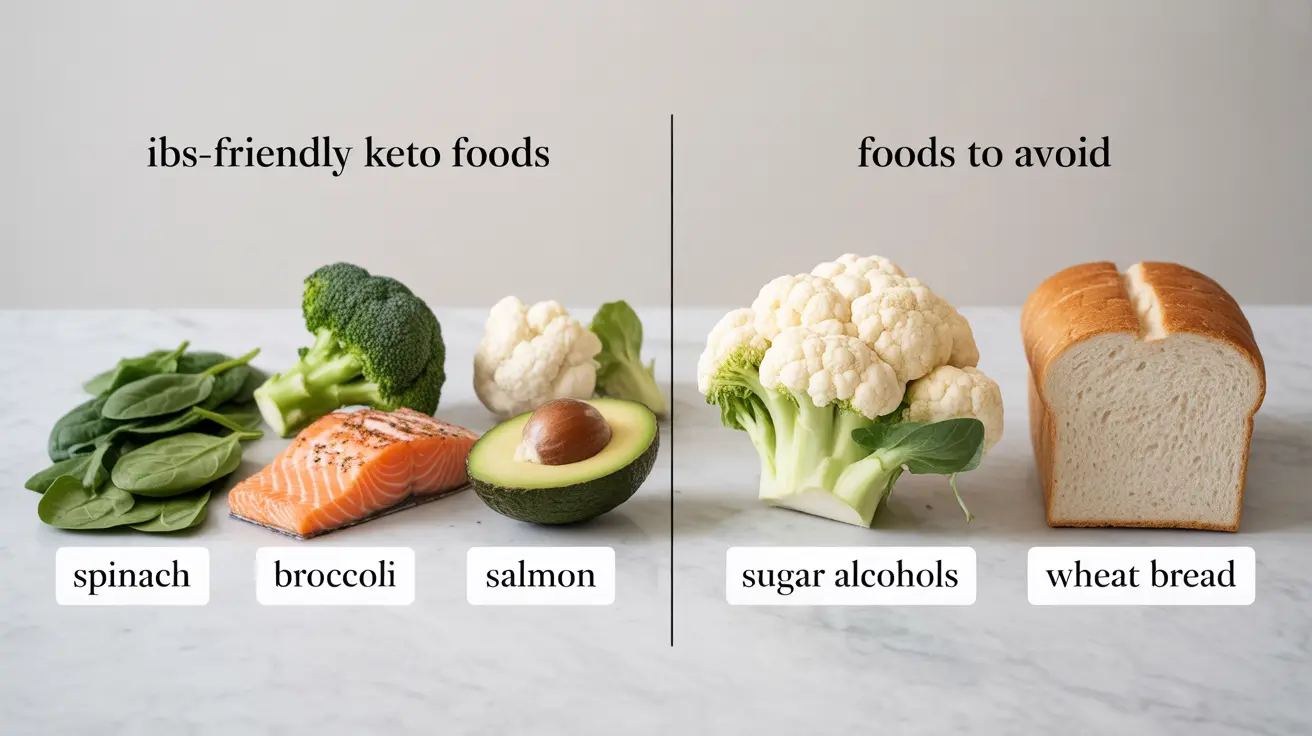For individuals struggling with Irritable Bowel Syndrome (IBS), finding the right dietary approach can be challenging. The ketogenic diet has gained attention as a potential way to manage IBS symptoms, but understanding its effects on digestive health requires careful consideration.
In this comprehensive guide, we'll explore the relationship between the keto diet and IBS, examining both potential benefits and risks to help you make an informed decision about this dietary approach.
Understanding the Ketogenic Diet's Impact on IBS
The ketogenic diet's high-fat, low-carbohydrate composition can significantly affect digestive function. By reducing carbohydrate intake, particularly FODMAPs that often trigger IBS symptoms, some individuals may experience relief from common IBS complaints.
Potential Benefits for IBS Management
Following a keto diet might help manage IBS symptoms through several mechanisms:
- Reduced inflammation in the gut
- Decreased consumption of problematic carbohydrates
- Improved gut bacteria balance
- Better blood sugar regulation
- Reduced bloating and gas
Common Challenges and Considerations
While the keto diet may offer benefits, it's important to recognize potential challenges:
- Initial digestive adjustment period
- Need for careful food selection
- Possible nutrient deficiencies
- Risk of triggering symptoms with certain keto-friendly foods
Foods to Include and Avoid
Keto-Friendly Foods That May Help IBS
Focus on these IBS-friendly keto options:
- Low-FODMAP vegetables
- Quality proteins like fish and lean meats
- Healthy fats such as olive oil and avocados
- Eggs (if tolerated)
- Small portions of approved nuts and seeds
Foods to Approach with Caution
Some keto-friendly foods may worsen IBS symptoms:
- Cauliflower and brussels sprouts
- Heavy cream and certain dairy products
- Sugar alcohols in keto treats
- Certain nuts like pistachios and cashews
- Processed keto snacks
Implementation Strategies
Successfully combining keto with IBS management requires careful planning:
- Start gradually to minimize digestive stress
- Keep a detailed food and symptom diary
- Stay well-hydrated
- Consider supplementation when necessary
- Work with healthcare providers for personalized guidance
Frequently Asked Questions
Can the keto diet help reduce symptoms of irritable bowel syndrome (IBS)?
The ketogenic diet may help reduce IBS symptoms in some individuals by limiting carbohydrates that often trigger digestive issues. The diet's anti-inflammatory properties and focus on whole foods can contribute to improved gut health, though results vary among individuals.
What are the risks of following a ketogenic diet if I have IBS?
Risks include potential digestive distress during adaptation, possible nutrient deficiencies, and symptoms triggered by certain high-fat foods. Some keto-friendly foods may aggravate IBS symptoms, making careful food selection crucial.
How does a keto diet affect diarrhea and constipation in people with IBS?
The keto diet's effect on IBS-related diarrhea and constipation varies. Some experience improvement in symptoms, while others may face initial challenges. Proper fiber intake and hydration are essential for managing these symptoms while following keto.
Which keto-friendly foods should I avoid to prevent worsening IBS symptoms?
Foods to approach cautiously include high-FODMAP vegetables, certain dairy products, sugar alcohols, and some nuts. Individual tolerance varies, so keeping a food diary can help identify personal triggers.
Is the ketogenic diet a sustainable and recommended treatment option for managing IBS?
The ketogenic diet can be sustainable for IBS management when properly planned and individualized. However, it's not universally recommended and should be undertaken with guidance from healthcare providers, particularly for long-term adherence.
Remember that dietary management of IBS is highly individual, and what works for one person may not work for another. Always consult with healthcare professionals before making significant dietary changes, especially when managing a condition like IBS.




